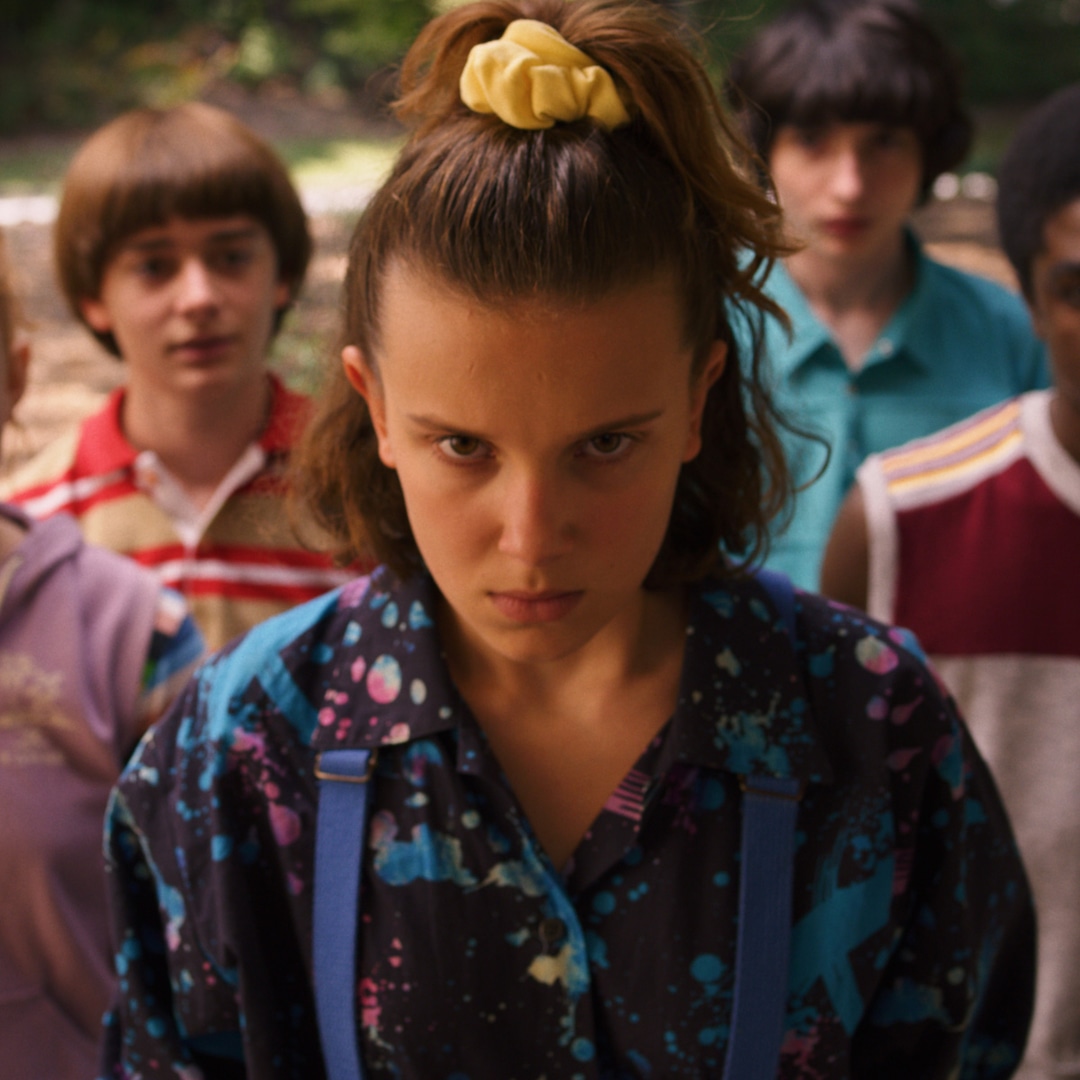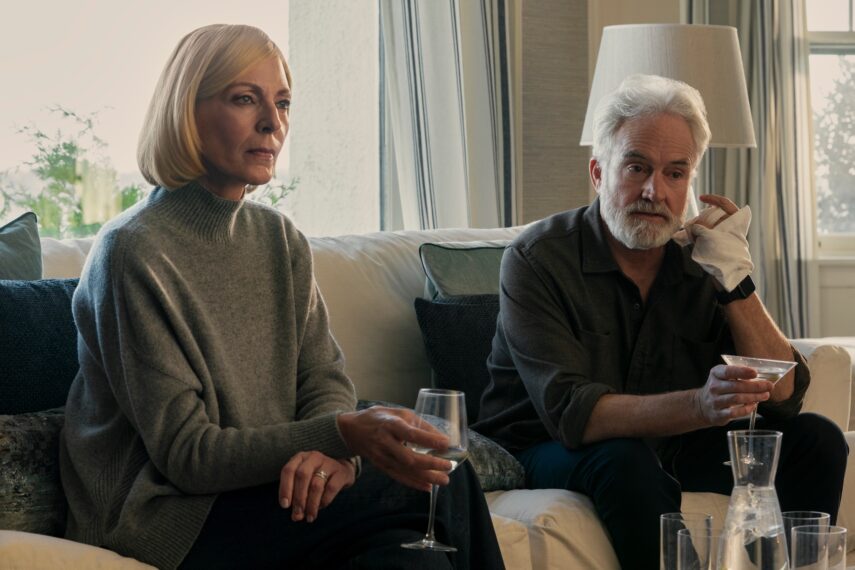
ComingSoon Editor-in-Chief Tyler Treese spoke to Pennyworth stars Jack Bannon and Ben Aldridge about the upcoming third season. The two discussed the series’ relationship with Batman canon and the increasing madness that the show embraces. The first three episodes of Pennyworth Season 3 are now available for streaming on HBO Max, with new episodes premiering every Thursday.
“The DC origin series Pennyworth: The Origin of Batman’s Butler follows Alfred Pennyworth (Jack Bannon), a former British SAS soldier, who forms a security company in 1960s London and goes to work with young billionaire Thomas Wayne (Ben Aldridge) and his wife Martha (Emma Paetz), before they become Bruce Wayne’s parents,” says the synopsis. “Season three of the psychological thriller begins after a five-year time jump: the civil war is over, and a cultural revolution has changed the world for better or worse – ushering in a new age of Super Heroes and Supervillains.”
Tyler Treese: Jack, five years have passed since Season 2. One of the big developments is that there are people with enhancements now. What’s most interesting about doing this show during this time with these like proto-superhumans that are spouting around?
Jack Bannon: Proto-superhumans … that’s good, I like that. It’s fantastic. I think it’s been brilliant to watch the evolution of the show or be part of it. To watch the evolution of the show from Season 1, where it’s kind of Dickensian sort of London and dark and character-driven drama, to this explosion of madness that is Season 3. It’s been great fun watching even the people with enhancements, some of them are fantastic. The stunt actors that come in with things on their head, or we had robotic arms that were driven by a PlayStation remote. It worked. It moved and it swung for me, and I’m fighting this thing and there’s a guy behind the actor with a PlayStation remote operating this arm. And I’m like, “I’m against two people here!” It’s kind of crazy. It is wild.
Ben, Season 2 ends with a big twist with Martha giving birth to a baby girl. Everybody thought it was going to be Bruce, what was your reaction when you found out that Thomas has a daughter?
Ben Aldridge: It was such a surprise to me to read it. I still don’t know what is on Bruno Heller — our showrunner –on his mind with that. I don’t know the answer to it. It’s obviously not part of the canon that Batman has a female sibling. Is she Batgirl? I’m not sure, but in Season 3, she’s … I think Sam’s eight years old or something?
Bannon: She’s five.
Aldridge: Is she five?
Bannon: It’s a five-year time jump. I think Jayda [Elyes], who plays her —
Aldridge: Oh yeah! It’s Jayda. Thanks. Okay, five. Everyone’s jumped forward to this seemingly more settled life, even though, definitely, the world around them is still pretty chaotic and unusual.
Jack, the showrunners have talked about a V For Vendetta connection and you could see some thematic similarities early on. Now we’re seeing people with Guy Fawkes masks and stuff and so much disarray going on within England. What do you like most about this side element to the show?
Bannon: Well, I think something that we’ve always done quite well is pulling in villains and people from real life. From literature, from other universes or other things. It’s been a lot of fun watching this melting pot of 70s London, of weird and wonderful characters, really.
Ben, it’s been so exciting over the first two seasons seeing Thomas and Martha get together. Now they’re married and they’re having like, trust issues. What’s been most fulfilling about just portraying this couple in a relationship that has had so many ups and downs?
Aldridge: Yeah, there’s never not a conflict with them. It’s never plain sailing, which is great for the material and for the scenes. They’re just like … they naturally light a fire under each other, I think. Bruno and the rest of the writers write for them and in a kind of brilliant, inspiring partner way. The conflict continues really. Their relationship is called into question even, even more than it has been before in Season 3. There are some huge reveals and trust issues and it gets pretty explosive for them as a family unit. Some unexpected twists and turns.
Jack, one of the things that make your portrayal of Alfred so interesting is that he’s constantly saying that he’s got to be his own boss. It’s so different from what we know him becoming as a servant. It really speaks to the respect he must have for the Waynes and gets for the future. What’s been most intriguing about knowing where the character ultimately ends up and being so different from that and going on this journey?
Bannon: That’s a very good observation. Doing an origin story is always interesting because, of course, you know where they end up. It’s about how you get there and I’ve tried to add a few bits in. [At] the beginning of Season 2, Mrs. Pennyworth’s house is in disarray and there was washing everywhere and whatever just after my father had died. There’s this scene and I added in a bit where he walked past the dining room table and there’s just some tea towels and I just started folding them up and they were like, “Wow, that’s great! Keep that!” Just little bits of butlering, basically. He makes the odd tea, you know, that kind of thing.
Which has been quite fun. He’s so far removed from the Alfred that we know in years to come. I think what’s been interesting for us is, initially — I don’t want to speak for you — but it was a show that was about how Alfred got to know the Waynes, but actually, we don’t spend much time together, Thomas and Alfred. I’m really intrigued to see how that relationship develops.
Aldridge: I think from the initial pictures, you would’ve thought it might end up being a bit of a buddy thing between them, but actually, this tension still lies between them. There’s this slightly weird distrust of each other and it’s almost like Alfred is brought into their business, reluctantly, each season. That happens again — we have to rely on him to protect us from danger, really. Which, I presume that’s … I don’t know how it’s going to evolve into what it becomes in the comic books, but I presume that’s the role that he takes on. It becomes even more personal for them the more chaotic their life becomes. I don’t know.
Ben, another interesting part of this season is that usually it’s Batman dealing with daddy issues, but Thomas Wayne has a lot going on with the whole father dynamic this season. What did you find most interesting about how dealing with those daddy issues yourself as Thomas?
Aldridge: I think what Bruno has done there is kind of obviously … we inherit our family dynamics and we often repeat them. I think what he’s done is trace that back to Patrick and Thomas’s relationship, which we really see in evidence here. The kind of distance that’s between them. Fast forward, there’s a similar distance and coldness between Bruce and Thomas in, in the comics. So I think that’s what he’s done — almost like an Easter egg, really. Even though I suspect Thomas doesn’t want to repeat that history. I think Bruno wrote some really sensitive, brilliant scenes, particularly toward the end. They were a real privilege to play. I think it will, but it definitely kicks off some big, big drama.
Jack, in the past, Alfred’s always put money first in his business dealings and we start to kind of see that change a bit in Season 3. He’s like, “am I really a good person or not?” What are your thoughts on just the development he’s undergone over 30 episodes?
Bannon: I think he’s gone from a boy to a man, really. I think everything that he’s, as you say, “I’ll need to work, be my own man, work for myself, be my own boss,” always gets called into question. Actually, it’s interesting to see where he ends up. I think in this one, yeah, the money stuff, morally …that’s the great thing about this show and Batman, in general, is [that] it’s not good and evil. It’s not black and white, you know? Good people do bad things, and vice versa. Exploring that sort of notion has been good over the 30 hours.
Ben, the first two seasons were on Epix, and now it’s moved to HBO Max, which is very exciting because a whole new audience can go through these twists and turns and the show’s so bingeable as well. What’s most exciting about knowing that you have such a huge streaming audience this year?
Aldridge: I think for us, we just want as many people to watch it as possible, and we’re very proud of it as a show. I think it’s got quite a unique tone to it. It can kind of do whatever it wants given that it predates the canon as well. So we can draw on things, and do lots of Easter egg moments, but we can create our own fiction in there. I think we’re just really happy that it’s moved to such a great platform and also that the show has evolved with HBO Max’s involvement as well. [With] the time jump five years ahead. I think the show has a slightly different kind of look and feel to it, which I think is really exciting. It still retains that Pennyworth darkness and gangster-thriller kind of thing, but it’s more colorful, more explosive. There’s more of London playing in it. We’ve got bigger and better sets and stuff. So we’re excited for the Season for sure.
The ending of Season 3 — no spoilers — but the show just gets so bonkers. When you read that in the script, could you believe what was going on? Because the show just keeps throwing me for a loop. Every time I think I have a grasp on it just goes in a totally different direction.
Bannon: Yeah, we’re with you there. It’s quite interesting because we get the scripts bit by bit as we’re filming, and they just seem to get madder and madder and madder.
Aldridge: Yeah. It gets a bit apocalyptic. It gets Walking Dead-ish. It leans into a few different genres toward the end.
















:quality(70):extract_cover():upscale():fill(ffffff)/2025/01/30/866/n/1922564/5de1da7d679bd74385a671.79574530_Screenshot_2.png)









![Chance the Rapper – Stars Out (2024) | STAR LINE [Official Music Video] Chance the Rapper – Stars Out (2024) | STAR LINE [Official Music Video]](https://i.ytimg.com/vi/ywSYgBVkocM/maxresdefault.jpg)